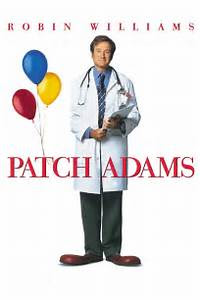Given the debate about 13 Reasons Why's controversial scene, I feel the need to discuss the idea of Artistic Liberty, and whether or not it goes to far.
I recently had the opportunity to perform in a production of The Shape of Things by Neil LaBute, in which an artist crosses several ethical boundaries in the name of her art. I won't list what lines were crossed, as that is what makes the play interesting to read and to watch. This also had raised the question of how far can (and should) an artist go to create their art.
Well... I actually don't know. Art has so many perspectives that it is hard to judge everything under the same rules. Everybody has their own line between effective and ineffective uses of Artistic Liberty.
So, let's look at a few examples of both good and bad artistic liberty usage, and then look at the choices made with 13 Reasons Why.
First, a very good example: Jack and Rose in Titanic.
This iconic couple from the James Cameron classic never truly existed. The entire story of the film's leads is a work of fiction based within a very real historical event. Now, some would say this is offensive to the real passengers on the ship, seeing as they all had stories that could have been told as well. However, choosing to focus on one of those people would likely have caused a bigger issue: Who? Why them? Why not this other person? By keeping the event "pure" and untouched by the plot, it allowed for people to better understand the event. It shows each class's living arrangements, the coal workers, and the rest of the staff. Finally, they show the emotional damage of losing a loved one in the disaster, as Jack freezes to death while Rose lives on, never forgetting her deceased love. Now, a very bad example: Patch Adams. While I love Robin Williams as a performer, and he will be greatly missed, this film is embarrassing for the real life people that are in it. The real Hunter Adams, who is the focus of the film, actually dispizes the film for the way they told the story. A few examples: The film is more Robin Williams acting like a clown than actually developing a new method of medicine, the "love interest" in the film was in reality a man who died a different way and had no interest in Adams at all, and they even wrote a completely fictional sexual assault backstory for said female character. These choices are offensive to the people the film is based on.
Now, a very bad example: Patch Adams. While I love Robin Williams as a performer, and he will be greatly missed, this film is embarrassing for the real life people that are in it. The real Hunter Adams, who is the focus of the film, actually dispizes the film for the way they told the story. A few examples: The film is more Robin Williams acting like a clown than actually developing a new method of medicine, the "love interest" in the film was in reality a man who died a different way and had no interest in Adams at all, and they even wrote a completely fictional sexual assault backstory for said female character. These choices are offensive to the people the film is based on.
So, with these in mind, where does 13 Reasons Why come down? In my opinion, they made a choice that best illustrated what they wanted to show. Having such intense visuals during the assaults and then cleaning up the suicide scene would have ruined the style and ideas of the show. Furthermore, while they did show it in graphic detail, they made sure to show the suffering of the victim, kept it all in one shot, and followed it immediately by the mother finding Hannah, a punctuation to the idea that there is an impact from these actions. While the scene may have gone against the guidelines for a film portrayal of suicide, they handled the scene with a professional attitude, helping to avoid glorifying the death of Hannah Baker.
Only time will be able to tell if the choice was in good or poor taste.
So there's my thoughts on Artistic Liberty. Let me know in the comments if you agree, or if you have a different opinion all together.



Comments
Post a Comment